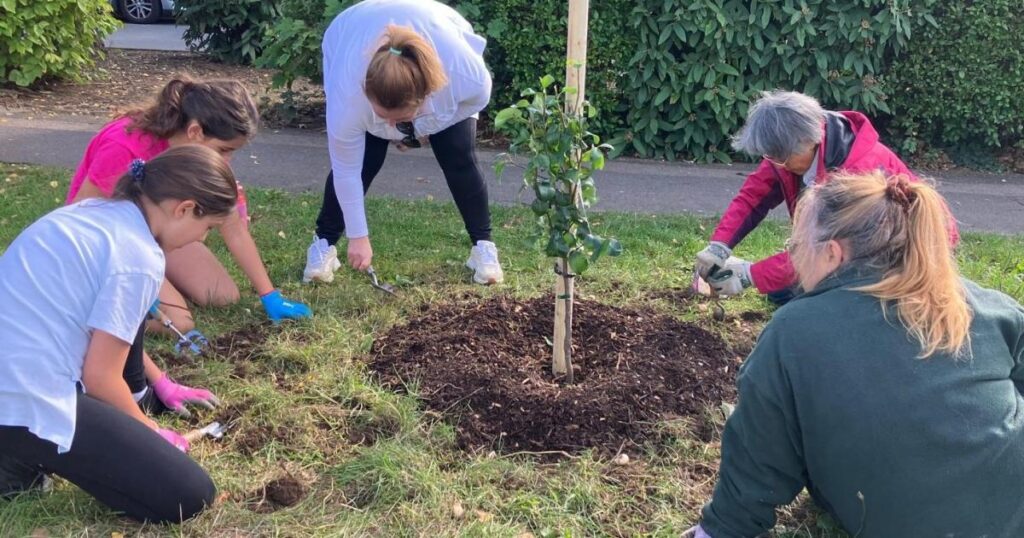One in six species are feared to be at risk of extinction in this country, it is pointed out.
So the town hall is giving nature a helping hand by opening up areas to wildlife and creating ‘pollinator pathways’ for creatures like bees and butterflies which are vital to our ecosystems.
Volunteers have stepped up to the plate creating their own community gardens and even adopting tree pits in their street.
The Woodford Greeners are one group who started a project to create a mini orchard out of wasteland.
“We noticed a patch of land which was quite a sorry sight,” Lydia Fraser-Ward who led the project said.
“So we asked the council about adopting the space to bring it back into use.
“We had 80 volunteers who created a wildflower meadow which has made the area more pleasant. The trees and plants have become a haven for wildlife like birds and insects.”
Schemes also include the Aldborough Hall nature reserve extension at Fairlop Waters with wildflower areas, grassland, ponds and ‘grow zones’ where grass is cut less frequently in spaces identified for attracting wildlife.
The wild spaces programme includes 850 tree pits up for adoption, the soil area at the base of trees which is perfect for planting.
Households can apply to adopt their own tree pit or join neighbours to look after all the pits in their street, along with any other nearby green areas.
This turns their street into a ‘pollinator pathway’ for wildlife, a corridor that connects different habitat areas for bees to travel between them and forage for food.
Redbridge Council’s cabinet member for environment, Jo Blackman, said: “We all have a responsibility to do what we can to reverse the decline in Britain’s wildlife.
“Anyone can help create wild spaces, whether it’s a windowsill, balcony, an area in school or the office or their own garden.”




